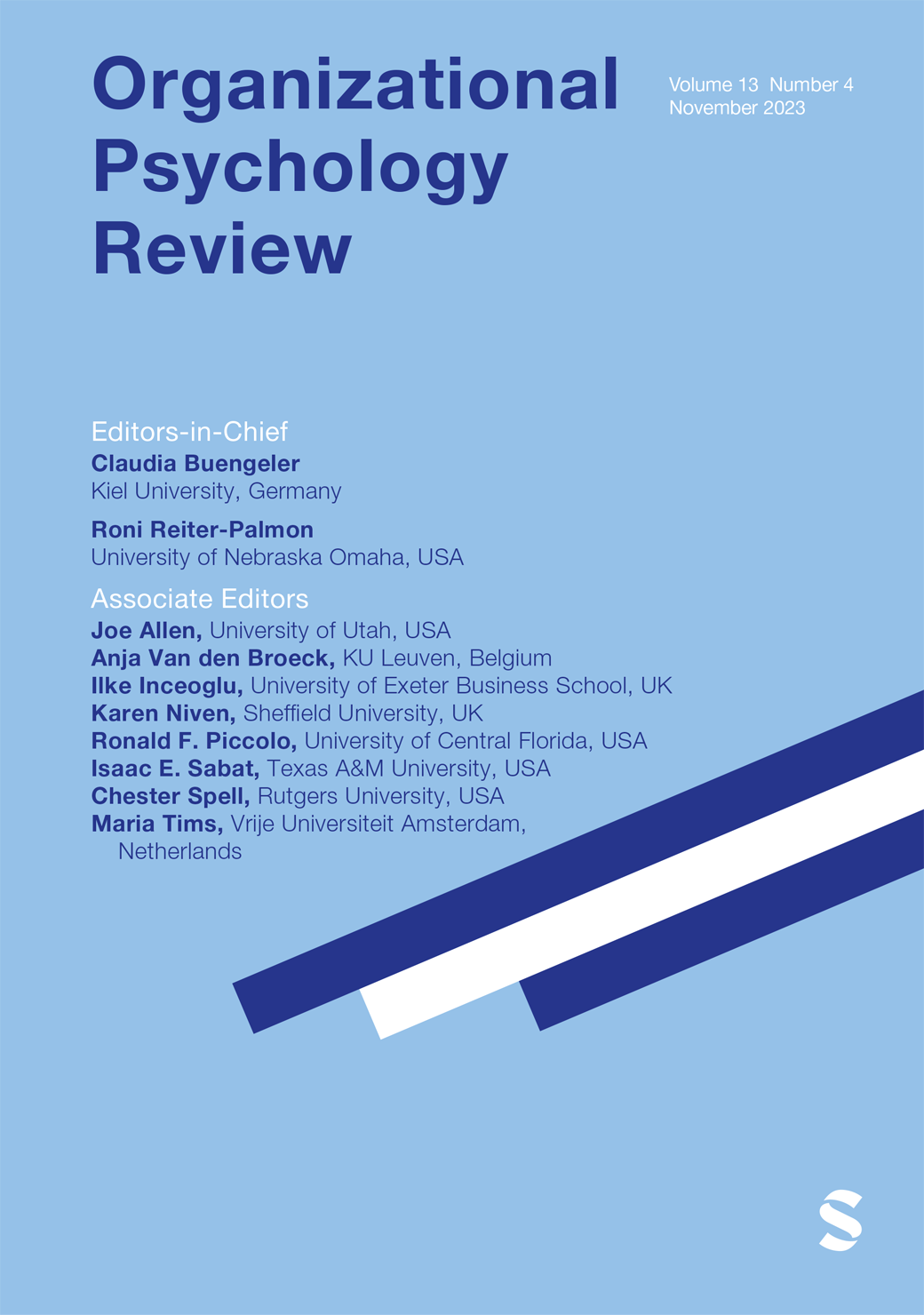Conducting organizational survey and experimental research online: From convenient to ambitious in study designs, recruiting, and data quality
IF 7.1
1区 心理学
Q2 MANAGEMENT
引用次数: 2
Abstract
Conducting organizational research via online surveys and experiments offers a host of advantages over traditional forms of data collection when it comes to sampling for more advanced study designs, while also ensuring data quality. To draw attention to these advantages and encourage researchers to fully leverage them, the present paper is structured into two parts. First, along a structure of commonly used research designs, we showcase select organizational psychology (OP) and organizational behavior (OB) research and explain how the Internet makes it feasible to conduct research not only with larger and more representative samples, but also with more complex research designs than circumstances usually allow in offline settings. Subsequently, because online data collections often also come with some data quality concerns, in the second section, we synthesize the methodological literature to outline three improvement areas and several accompanying strategies for bolstering data quality. Plain Language Summary: These days, many theories from the fields of organizational psychology and organizational behavior are tested online simply because it is easier. The point of this paper is to illustrate the unique advantages of the Internet beyond mere convenience—specifically, how the related technologies offer more than simply the ability to mirror offline studies. Accordingly, our paper first guides readers through examples of more ambitious online survey and experimental research designs within the organizational domain. Second, we address the potential data quality drawbacks of these approaches by outlining three concrete areas of improvement. Each comes with specific recommendations that can ensure higher data quality when conducting organizational survey or experimental research online.在线进行组织调查和实验研究:从方便到雄心勃勃的研究设计、招聘和数据质量
通过在线调查和实验进行组织研究,在为更先进的研究设计进行抽样时,与传统形式的数据收集相比,提供了许多优势,同时也确保了数据质量。为了引起人们对这些优势的关注,并鼓励研究人员充分利用这些优势,本文分为两部分。首先,沿着常用研究设计的结构,我们展示了精选的组织心理学(OP)和组织行为(OB)研究,并解释了互联网如何使研究变得可行,不仅可以使用更大、更具代表性的样本,还可以使用比离线环境通常允许的更复杂的研究设计。随后,由于在线数据收集通常也会带来一些数据质量问题,在第二节中,我们综合了方法论文献,概述了三个改进领域和几个提高数据质量的相应策略。简明语言总结:如今,来自组织心理学和组织行为领域的许多理论都在网上进行了测试,只是因为它更容易。本文的目的是说明互联网的独特优势,而不仅仅是方便——特别是相关技术如何提供不仅仅是反映离线研究的能力。因此,我们的论文首先通过组织领域内更雄心勃勃的在线调查和实验研究设计的例子来引导读者。其次,我们通过概述三个具体的改进领域来解决这些方法潜在的数据质量缺陷。每一项都有具体的建议,可以确保在网上进行组织调查或实验研究时获得更高的数据质量。
本文章由计算机程序翻译,如有差异,请以英文原文为准。
求助全文
约1分钟内获得全文
求助全文
来源期刊

Organizational Psychology Review
Multiple-
CiteScore
10.00
自引率
1.60%
发文量
25
期刊介绍:
Organizational Psychology Review is a quarterly, peer-reviewed scholarly journal published by SAGE in partnership with the European Association of Work and Organizational Psychology. Organizational Psychology Review’s unique aim is to publish original conceptual work and meta-analyses in the field of organizational psychology (broadly defined to include applied psychology, industrial psychology, occupational psychology, organizational behavior, personnel psychology, and work psychology).Articles accepted for publication in Organizational Psychology Review will have the potential to have a major impact on research and practice in organizational psychology. They will offer analyses worth citing, worth following up on in primary research, and worth considering as a basis for applied managerial practice. As such, these should be contributions that move beyond straight forward reviews of the existing literature by developing new theory and insights. At the same time, however, they should be well-grounded in the state of the art and the empirical knowledge base, providing a good mix of a firm empirical and theoretical basis and exciting new ideas.
 求助内容:
求助内容: 应助结果提醒方式:
应助结果提醒方式:


